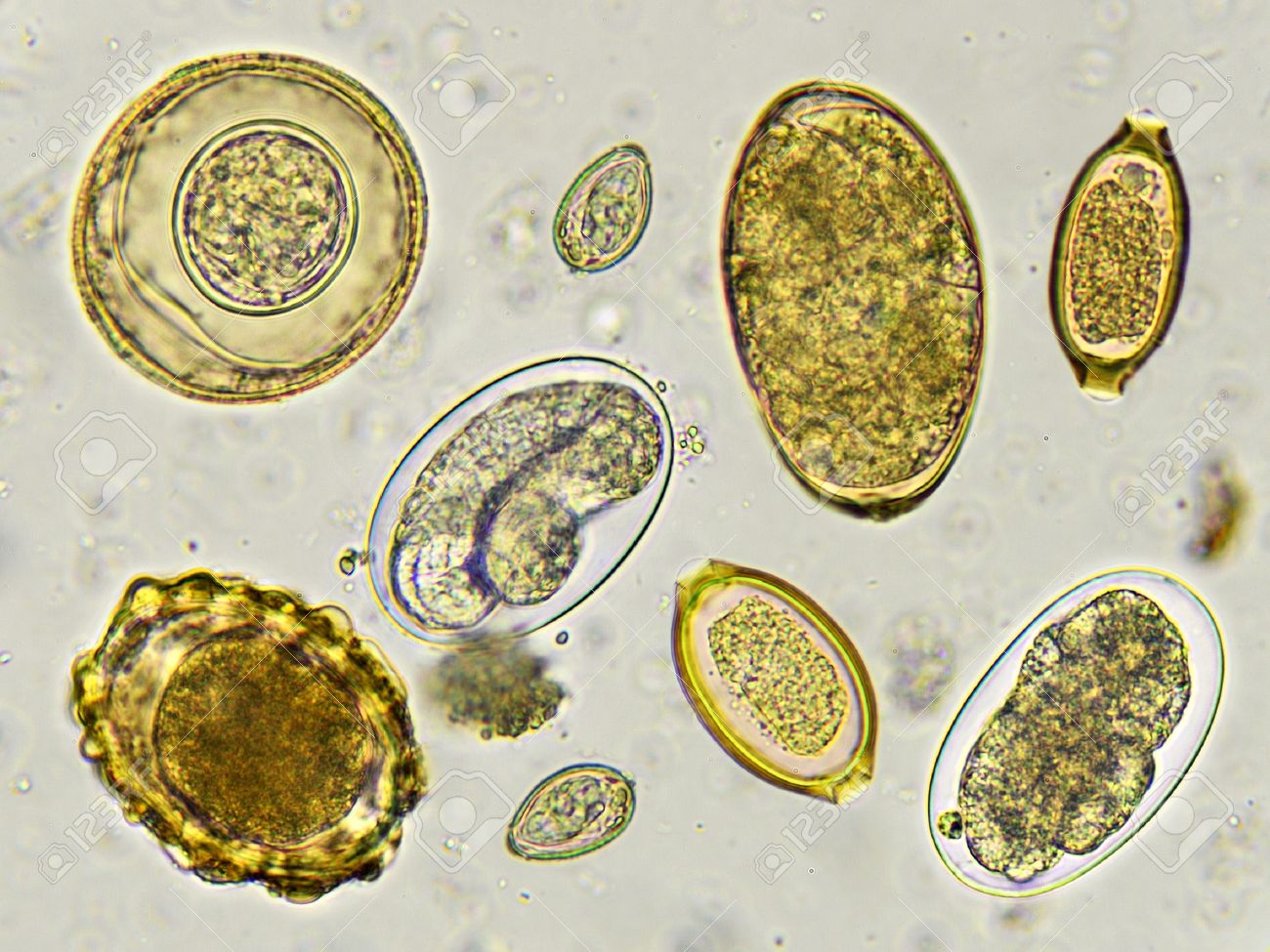Soil transmitted helminthiasis is caused by infections with the nematode worm Ascaris lumbricoides, the hookworms Necator americanus and Ancylostoma duodenale, and Trichuris trichiura.
An estimated 5.3 billion of people are at risk, while 1.5 billion are
infected with at least one of the soil transmitted helminths. Despite a global decline in infections, prevalence remains high in Asia, followed by sub-Saharan Africa and Latin America. A lumbricoides and T trichiura
infections particularly affect preschool and school aged children,
while hookworm infections are more prevalent in adults. Infected people
predominantly live in poor conditions in the least developed countries,
where households lack adequate facilities and clean water. Morbidity
correlates with the number of worms harbored by infected individuals.
While light infections commonly remain asymptomatic, moderate and heavy
infections cause severe morbidity, including growth stunting, intellectual impairment, cognitive and
educational deficits, malnutrition, and iron deficiency anaemia. In 2015, the global burden of infections with soil transmitted
helminths was estimated at 3.4 million disability adjusted life years
(DALYs). 

The most widely used drugs—albendazole and mebendazole—have shortcomings
in their efficacy profile, especially against infections with hookworm
and T trichiura. Alarmingly, the efficacy of albendazole and
mebendazole has decreased over time. As the two most widely distributed
drugs in preventive chemotherapy—albendazole and mebendazole—have been
in use for almost 50 years, the threat of resistance is real and
immediate. For careful monitoring of potential resistanceAll four currently recommended drugs show limitations in their efficacy
profile. While only albendazole showed good efficacy against hookworm
infection, all drugs had low efficacy against T trichiura. The decrease in efficacy of albendazole against T trichiura
over the past two decades is of concern. The findings indicate the need
for strengthening efforts to develop new drug treatments, with a
particular focus on drugs against T trichiura. 


No comments:
Post a Comment